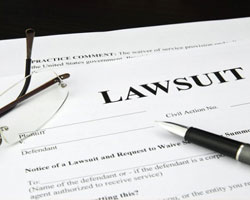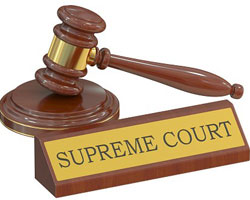Lawsuits and Disputes

When the actions of another person have cost you money, or otherwise limited or infringed on your rights, like most people, you’ll probably try to work it out and come to a resolution that’s fair. But if the person who caused your losses won’t work with you, you may need to take legal action to get the outcome you want. You have the right to file a lawsuit, also known as a civil suit or civil action, to seek financial compensation for your losses. There are very specific rules, however, regarding where a lawsuit may be filed, as well as the process for moving from the initial filing through the gathering of evidence to trial.
GetLegal.com’s Lawsuits and Disputes Center walks you through the steps involved in filing a civil action. You’ll also find a wealth of information about the different courts, different types of legal actions, and ways that you can resolve legal controversies without the time and expense of litigation (such as mediation and arbitration).
Connect with Top-rated Attorneys Near You
Lawsuits and Disputes Practice Areas
Latest Article
The Exclusionary Rule: Definition, Examples, and Impact
What Is the Exclusionary Rule? What Are Common Situations Where It Applies? Are There Exceptions? How Has It Changed Cri... Read More
False Imprisonment: Protecting Yourself Against Wrongful Detention
What Is False Imprisonment? What Are the Potential Remedies? Are There Exceptions to the Rule? As humans, one of our mo... Read More
Lying Under Oath: The True Penalty for Perjury
What Is Perjury? What Must the Prosecutor Prove? What Are the Penalties? In the legal system, oral and written testimon... Read More
GETLEGAL®ATTORNEY DIRECTORY
Find Leading Attorneys in Your Area
NEED PROFESSIONAL HELP?
Talk to an Attorney
How It Works
- Briefly tell us about your case
- Provide your contact information
- Choose attorneys to contact you









